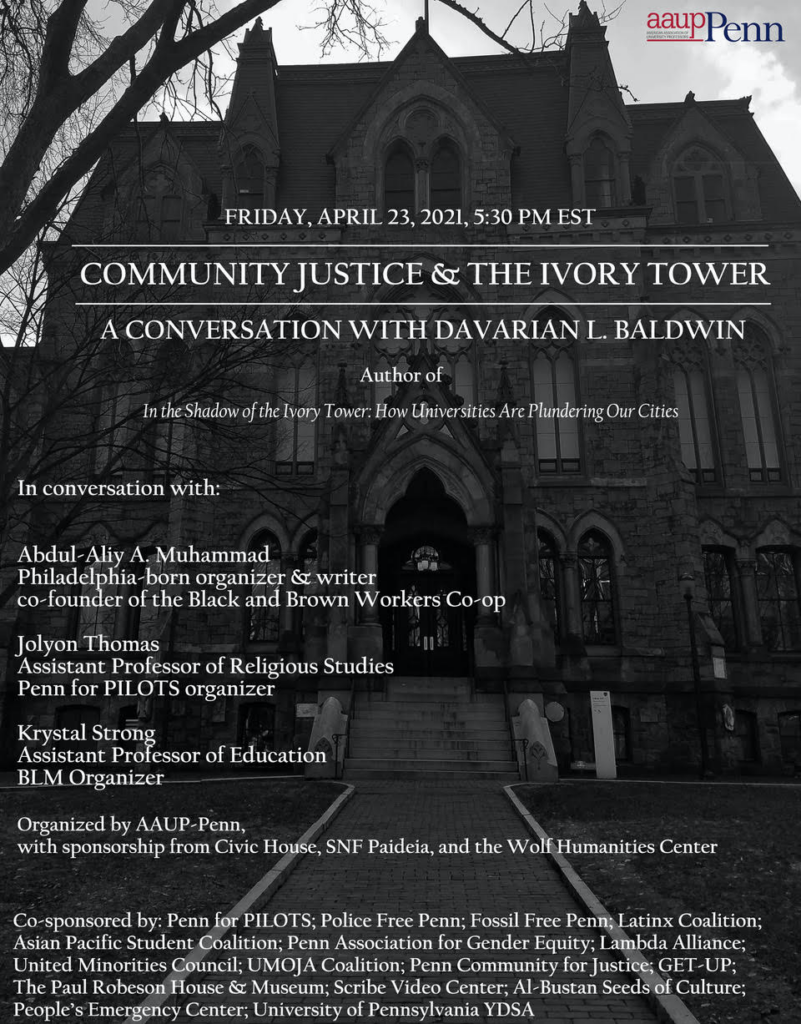Statement of the AAUP-Penn Executive Committee on Penn Libraries United
We stand with our colleagues in Penn Libraries United who are unionizing to make Penn a better, fairer, and more democratic university. They are choosing to come together across job categories and join their long-unionized colleagues in AFSCME DC47 Local 590, which has a proud and productive history at Penn. All of us who do the work that makes Penn run deserve a meaningful voice in institutional policies that affect our lives. All of us deserve working conditions that are equitable. Unions are essential institutions that provide a democratic voice at work and the capacity to win real change for the better.
If this last year taught us anything, it’s that the University of Pennsylvania and the United States itself need stronger systems of democratic decision-making. Today, unaccountable donors and politicians who care nothing for education or democracy are attempting to control what can be taught and studied in the United States. Meanwhile, our own university administration is attempting to strip faculty, staff, and students of our rights to assemble, speak, and protest. The freedoms to teach, learn, study, assemble, and speak are necessary to the integrity of higher education and to democracy itself. If we hope to safeguard the mission of higher education, in which library workers play a crucial part, we need to create legitimate forms of democratic decision-making within our universities to resist external interference and abuses of power. In building a union together, our colleagues in the libraries are showing us the way.
As librarians and other library staff are working to build democratic institutions at Penn, the university administration is attempting to undermine them. As they have repeatedly done in past organizing drives, administrators have hired an anti-union law firm and launched an anti-union campaign designed to interfere with workers’ legal right to organize. They have disseminated misleading and intimidating anti-union materials framed as neutral “information,” a standard tactic that employers use to sow fear, doubt, and confusion and sway the outcome of elections. We call on Penn’s central administration and on library administrators to cease this coercive attempt to interfere with workers’ right to organize, and we call on them to honor the legacy of negotiation with a well-established union at Penn. Only by ending the anti-union campaign can the university administration demonstrate respect for the principle of workplace democracy—a principle that we so desperately need at Penn and across higher education today.



